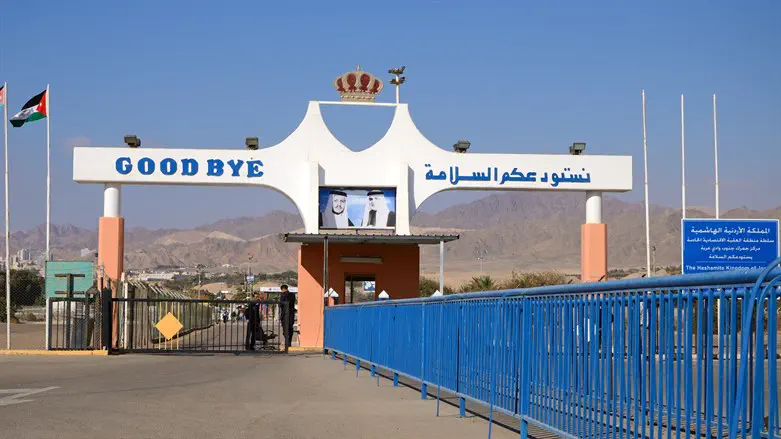
Israel and Jordan on Tuesday signed a memorandum of understanding (MoU) to move ahead with a water-for-energy deal after an initial examination of the project found it to be feasible, i24NEWS reported.
The idea, first announced in November of last year, is for Jordan to build 600 megawatts of solar power capacity that would be exported to Israel. In return, Israel would provide water-scarce Jordan with 200 million cubic meters (mcm) of desalinated water.
The MoU was signed at the COP27 climate summit in Egypt at an event hosted by the United Arab Emirates, which is a partner in the project.
The Energy Ministry said that the signing "expresses the countries' shared desire to deal with the climate crisis through cross-border cooperation."
Outgoing Regional Cooperation Minister Esawi Frej signed for Israel. Outgoing Energy Minister Karine Elharrar was not in attendance at the UN conference being held at the Red Sea resort town of Sharm el-Sheikh.
Mohammad Al Najjar, the Jordanian minister of water and irrigation, and UAE Climate Change and Environment Minister Mariam Al Mheiri also signed the MoU, according to i24NEWS.
The basis for Tuesday's signing was a declaration of intent signed by the three parties on the sidelines of the Dubai Expo last year. The initial signing was held in the presence of US Special Presidential Envoy for Climate John Kerry.
Jordan signed a peace deal with Israel in 1994 but its parliament, which is made up mostly of Islamists, remains anti-Israel and its members have more than once called to annul the peace treaty. This decision, however, can only be made by the King.
King Abdullah II met Prime Minister Yair Lapid in September, on the sidelines of the UN General Assembly, during which he called for a “two-state solution” to solve the Israeli-Palestinian Arab conflict.
In an interview with CNN in July of 2021, King Abdullah II said he was encouraged by meetings he had with then-Prime Minister Naftali Bennett and Defense Minister Benny Gantz.
"I came out of those meetings feeling very encouraged. We’ve seen in the last couple of weeks not only a better understanding between Israel and Jordan but voices coming out from both Israel and Palestine that we need to move forward and reset that relationship," the King said.
"We must bring about the restoration of contacts between Israel and the Palestinians, even though the conditions are not optimal for the implementation of a two-state solution," he added.
